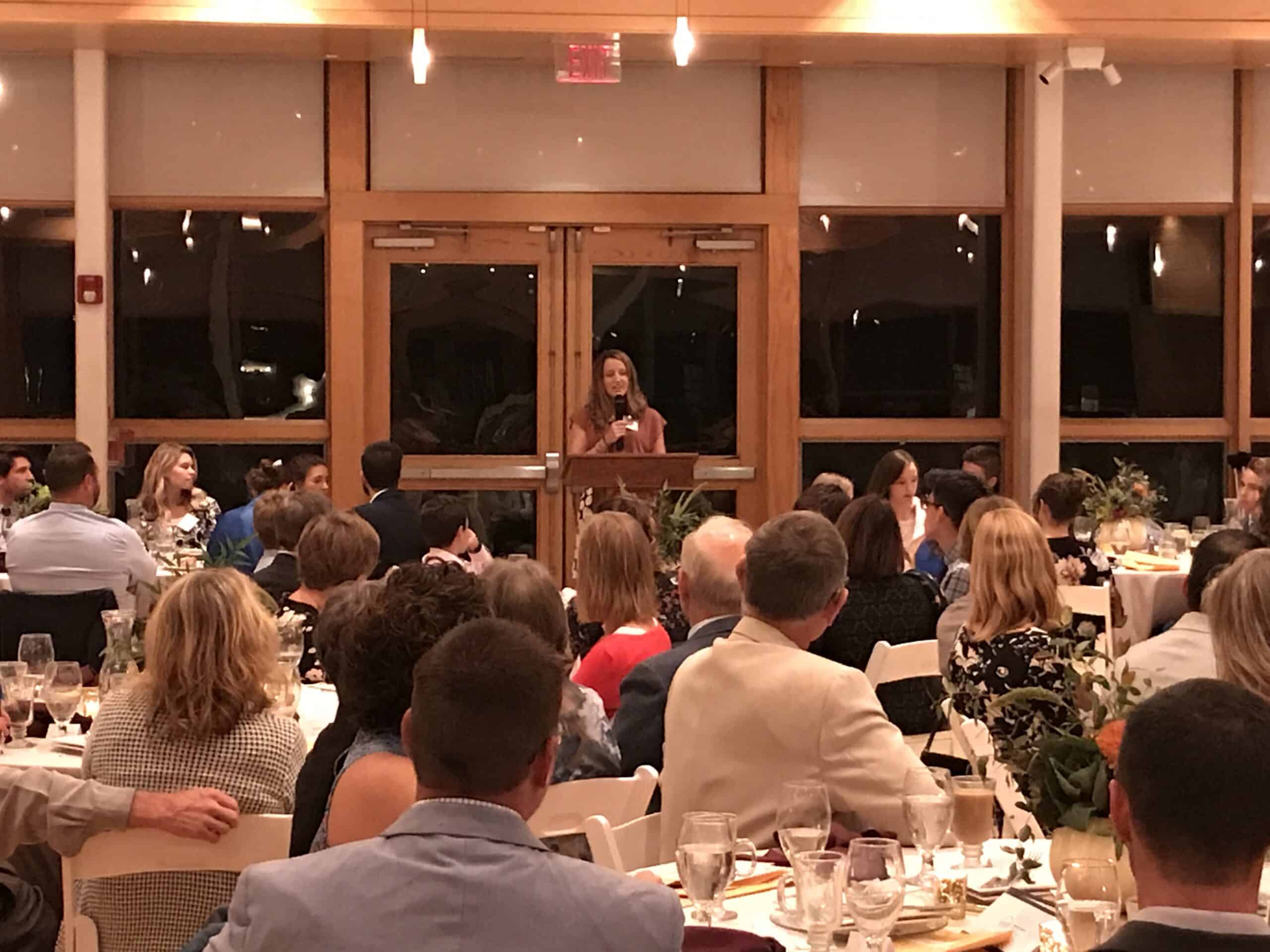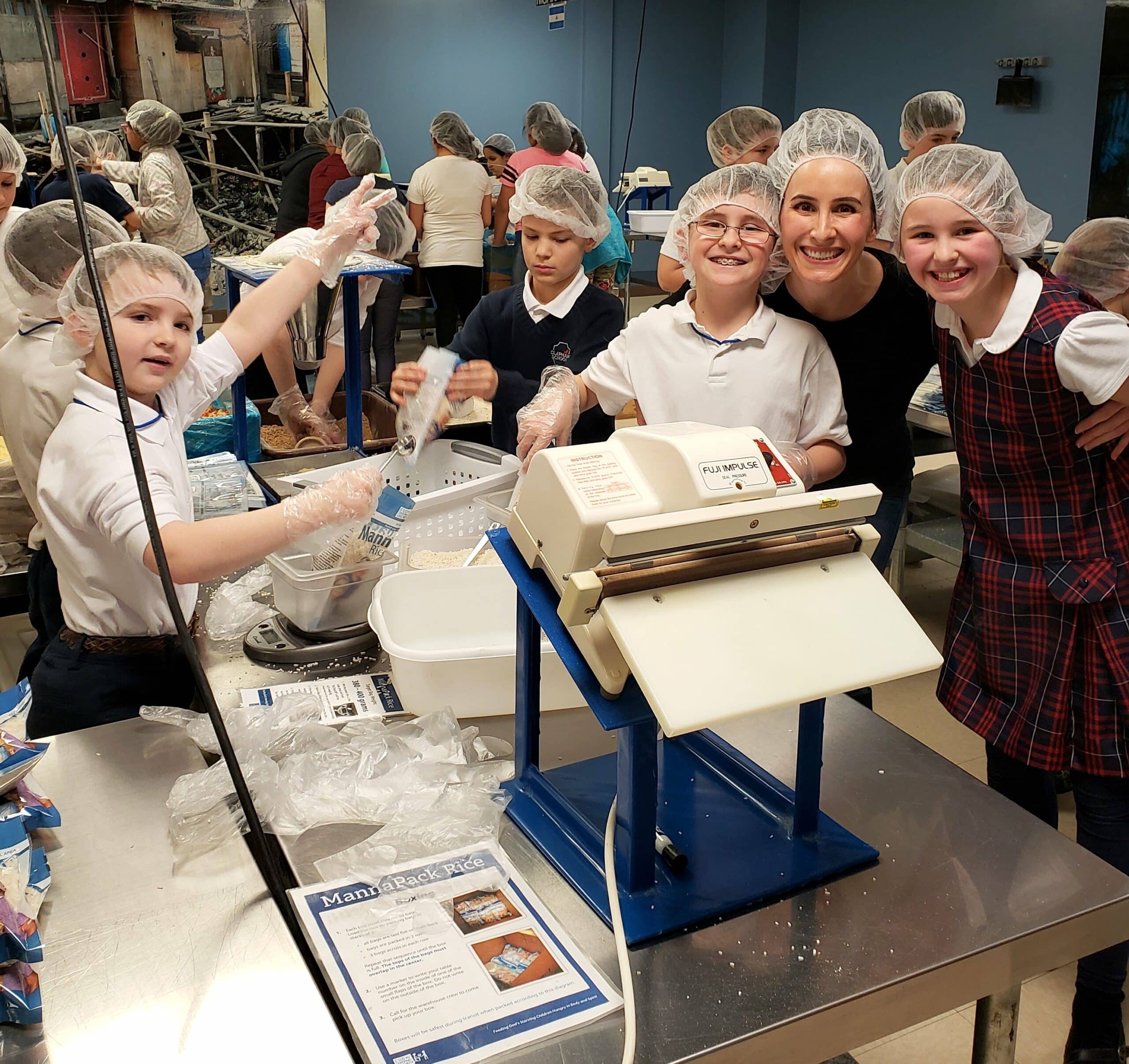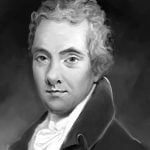At the 2019 Fall Benefit I addressed the topic “The Need To Be Equipped,” meaning the idea that our children need to be equipped in order to become the intentional servants of Christ that our vision imagines. My aim was to address a couple of unspoken objections to this commonsense assumption that might be holding us back from full commitment to that task of equipping, with all that it entails.
In doing so I engaged in a little experiment by preparing only a very basic outline rather than scripting the talk. Don’t get me wrong. I practiced the talk a few times in the days leading up to the event, timing myself to make sure I wouldn’t go too long. (I had to cut almost half of my subpoints and examples that I had brainstormed while at the park with my two kids, because the first time through I hit the 20 min mark and wasn’t even half-way through my outline!)
I was hoping to create a more engaging experience for myself and the Fall Benefit participants through the tension of thinking things out on my feet. It seemed to work; at least, the talk didn’t crash and burn, and everyone seemed engaged based on the eye contact I was able to maintain.
I mention this as a preface to the following two blog articles, because they are not simply the script of the talk, like some earlier public addresses turned blog articles (e.g. Charlotte Mason and the Growth Mindset). So even if you were present at the Fall Benefit, this won’t be simply a repeat, and for those of you who couldn’t make it, please tune in to keep up with the community and think with me about a really crucial aspect of why Clapham exists: our students’ need to be equipped.
The Logic of the Need to be Equipped
I am deriving the idea that our students need to be equipped from the first part of Clapham School’s vision, which reads,
Clapham School equips young men and women to intentionally serve Christ….
The clear implication of this sort of claim is that young men and women need to be equipped, if they are going to go out into the world and serve Christ purposefully, intelligently and with humility. That doesn’t just happen. Intentional servants of Christ don’t just appear magically. They are prepared through a long period of equipping, mentoring, training and development. Their educational experiences, both formal (in settings like school or church) and informal, help to equip them for that sort of service-oriented life. Some may end up serving Christ haphazardly, as if by accident, but intentional servants have been equipped for the task.
So this idea that young men and women need to be equipped is a necessary logical corollary of the vision. If Clapham School exists to do this work of equipping, we must be convinced that equipping is necessary for attaining the sort of goals we hope and pray for our children. It may not be the only thing needed, but if it were simply and plainly unnecessary, our vision would be a sort of a dead-end—a nice extra, but not something worth giving our time, talent and treasure toward.
I don’t know about you, but this vision of Christian equipping inspires me. It’s why we do Christian, classical, joyful discovery education—because of this outward looking vision that is purposeful and imagines what it would be like if a host of young men and women were going out into the world, not just barely faithful to their Christian upbringing, but truly and profoundly equipped to serve Christ uniquely in their vocations, families and communities, in all the manifold and varied ways that He might call them to do so.
The First Objection to the Need to be Equipped
But there is an objection nagging at my consciousness, under the surface of this outward confidence. And that objection initially takes the shape of a question: Do servants of Christ really need to be equipped? After all, can’t God miraculously (if not magically) equip servants late in life if that’s what He so chooses? Can’t He get a hold of their life, no matter their background and instantaneously prepare them for whatever divine service He has prepared for them, including all the skills and gifts and talents they might need for that service?
Well, the answer to such questions is obviously, “Yes, God can do anything, so He certainly can miraculously equip his servants late in life.” And this objector in my head is even more sophisticated, for he has biblical examples to support his point.
What about Peter and the first apostles, who when they were brought before the council in Jerusalem in the beginning of the book of Acts, were called ‘unlettered’ or ‘uneducated’ men, but the religious leaders marveled at their public teaching? And then they realized that they had been with Jesus! These first servants of Christ didn’t go through the elite schooling system of the day, nor were they trained in the schools of the Pharisees and Rabbis. You see, they didn’t need to be equipped! Or did they?
A little bit of reflection should encourage us to realize that being with Jesus as his disciples, his students (that is after all what the Greek word matheteis means, just like the Latin discipulus), can’t be just glossed over, as if it were not the very sort of equipping we are talking about. True, Jesus’ direct equipping education was beyond what we can reproduce in our modern Christian schools. But still, even if the disciples’ three year crash course is different in degree than what we seek to accomplish, it doesn’t follow that it is different in nature or kind. The disciples may have had a different vocation and served different needs in their time than our budding servants of Christ will in our world, but what we’re aiming for is essentially the same: intentional service to Christ.
So far from being an example of not needing to be equipped, Peter and the other disciples are actually prime examples of God using a normal equipping process with Jesus as their teacher and mentor, even if he was so much more as well.
But what about another biblical example like Moses? When God revealed himself to him in the burning bush and told him to go confront Pharaoh and tell him to let his people go, Moses’ response was, “Lord, send someone else. I am not equipped for the task. I am slow of speech and slow of tongue.” And God’s response to him was, “Who made man’s mouth? Was it not I the Lord?” Notice that God does quibble with Moses’ claim to be ill-equipped. He simply points out that He is the Creator God with ultimate power and authority over all the skills and abilities of humankind. Now again, our biblically literate objector has a strong point. This passage does illustrate God’s sovereign power to overcome ill-equipping. And it’s definitely significant that God does not descend to arguing with Moses about how equipped or not he is. The place for human trust is not ultimately in the quality of our equipping education, but in the power and purposes of a sovereign God.
But just because that is the case, it doesn’t mean that God couldn’t have engaged in a pretty good argument to prove to Moses that he had been uniquely equipped and trained for his particular service. After all, Moses had been born into God’s chosen people in slavery to Egypt, and yet, miraculously preserved through, in part, the ingenuity of his mother and sister, he ended up being raised as a dual citizen. Adopted prince of Egypt, trained according to Stephen in the book of Acts in all the lore and wisdom of the Egyptians, Moses was nevertheless nursed by his own Hebrew mother from the beginning. And whatever modern movies may imagine, we have no biblical reason to suppose that Moses wasn’t nourished on the faith of his mother and filled with an awareness of his own status as a Hebrew and of the traditions of his people. How else could he eventually have made the decision to choose “rather to be mistreated with the people of God than to enjoy the fleeting pleasures of sin” as the author of Hebrews writes (11:25 ESV)?
Who better to serve as a messenger to Pharaoh, than one skilled in their literature and court etiquette? What more appropriate education than the dual training both in the pagan wisdom of the greatest empire of the world at the time, and in the faith of his mother and the suffering people of God? Even if Moses did not feel equipped, it does not follow that he was not in fact equipped by God’s providence in his education. And the best way to address Moses’ feelings of inadequacy was to point to reliance on God rather than the pedigree of his education.
So again, the example of Moses ends up serving not our objector’s point that God could overcome ill equipping—which is true enough—but the premise we started with, that God normally equips his servants through a lengthy educational process that prepares them to fulfill the unique calling God has placed upon their lives. And so, while trusting the providence of God, we should aim to equip our children as best we can and know how.
A More Modern Example of Equipping: William Wilberforce
This idea gets further support when we look to more contemporary examples. Even late converts, like C.S. Lewis, often have an incredible quality of preparation through an equipping education that could broadly be characterized as Christian and classical. This unique blending of the best that a pagan or secular world has to offer, along with exposure to the faith and worldview of the persecuted people of God, has already been seen in the life of Moses. But instead of diving into the story of a Lewis as an illustration of how this is the case (as desirable as that might be), it’s perhaps more fitting, given our namesake, to tell the story of the man who became the center of gravity for “three generations of saints and philanthropists”: William Wilberforce.
Given what a dynamic and inspiring character William Wilberforce was, and how he ended up being, in the words of Stephen Tomkins, the “centre of gravity” for the Clapham Circle (The Clapham Sect: How Wilberforce’s Circle Transformed Britain, 25), we might be forgiven for thinking that Wilberforce made the Clapham Circle into what it was. In point of fact, it seems to have been the other way around. The Clapham Circle made William Wilberforce.
(By the way if you haven’t read it, check out Carolina’s great article “6 Interesting Facts about the Clapham Sect”.)
Like C.S. Lewis, Wilberforce was somewhat of a late convert to the evangelical faith, though primed by some early exposure and training. The true grandfathers of the Clapham Circle were John Thornton, one of the richest businessmen in England at the time, and Henry Venn, the one-time pastor of Holy Trinity in Clapham, who helped convert John Thornton, alongside his wife Lucy Watson. Besides supporting gospel preachers throughout England, John Thornton “lived a life of quite eccentric simplicity for a rich man, economizing so that he would have more to give to his mission”; for him “material generosity went hand in hand with spiritual outreach” (16). Among many other causes, he sponsored one of the most famous preachers and hymn-writers of all time: John Newton.
How does this relate to William Wilberforce? A few ways. His grandmother Sarah Wilberforce was John Thornton’s aunt, and John Thornton’s half-sister, Hannah Thornton, married another William Wilberforce, making them the aunt and uncle of our William Wilberforce. Hannah and William were devout believers in the circle of John Thornton, and close friends of John Newton. To them young William was sent at the age of ten, after the death of his father. From a life of mostly nominal Anglicanism, he now was introduced to what he later called “practical Christianity”:
“Hannah taught him her own faith, and he took to it eagerly. He was instructed by Newton, and John Thornton once gave him a very large gift of money telling him to use some of it to help the poor.” (43)
After two years, his mother and grandfather brought him back, having become alarmed at the non-conformist and “Methodist” influences that were shaping young Wilberforce’s faith.
Before this stint with his aunt and uncle, Wilberforce had gone to school at Hull Grammar School, where he studied under the young and dynamic headmaster Joseph Milner and his brother Isaac. In his free time, Joseph, a graduate of Cambridge, was writing a well-recognized history of the Christian church. Isaac was a mathematician and inventor, and later President of Queen’s College, Cambridge. Both of these men became life-long friends, and Isaac would later be instrumental in Wilberforce’s conversion during a tour of the European continent.
They recalled Wilberforce’s precociousness as a student from an early age, and how because of his mellifluous and resounding voice, they once had him get up on a table to recite as an example to his peers. To the faith of his aunt, lived out in service to Christ, these mentors added a classical education, carried out with genuine excellence.
Unfortunately, after returning home to Hull, his mother made sure he didn’t return to Hull Grammar School, because she had heard rumors that Joseph Milner had become “Methodist.” Sent to elite prep schools and then Cambridge, and encouraged in a worldly lifestyle, William Wilberforce saw the flower of his youthful faith fade into the background.
But in spite of that, through those early experiences William Wilberforce had been equipped for service to Christ through his Christian and classical education. When he heard the call of Christ, he was prepared to take up mantle. In counsel with John Newton, he decided to stay in politics and use the gifts and position he had been given to serve the cause of Christ in England and around the world.
Stay tuned for Part 2 next week, dealing with a second objection and exploring the idea of a Clapham as a Hotspot of Service to Christ, using Daniel Coyle’s The Talent Code.
Also, don’t miss Winter Curriculum Night, next Thursday 1/23 at 6:30 pm! I’ll be exploring the topic “Equipped to Discern” briefly, and parents will get to attend “Lessons That Equip” by Clapham teachers. Invite interested friends!
{{cta(‘395745bc-bdd2-42ac-a555-383bdd666998′,’justifycenter’)}}
{{cta(‘ccd3ffc8-c060-48b4-a8bb-5974b04c1839’)}}




